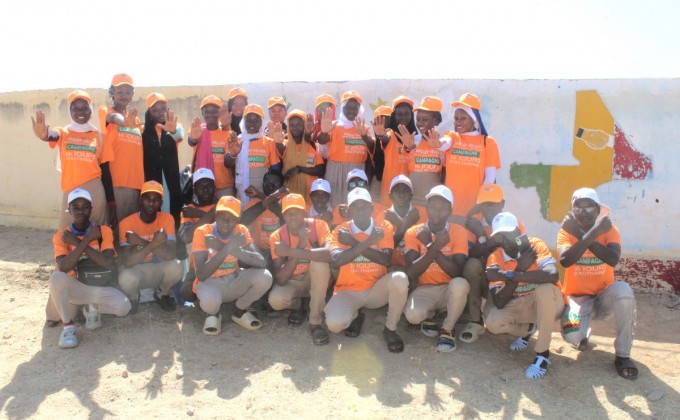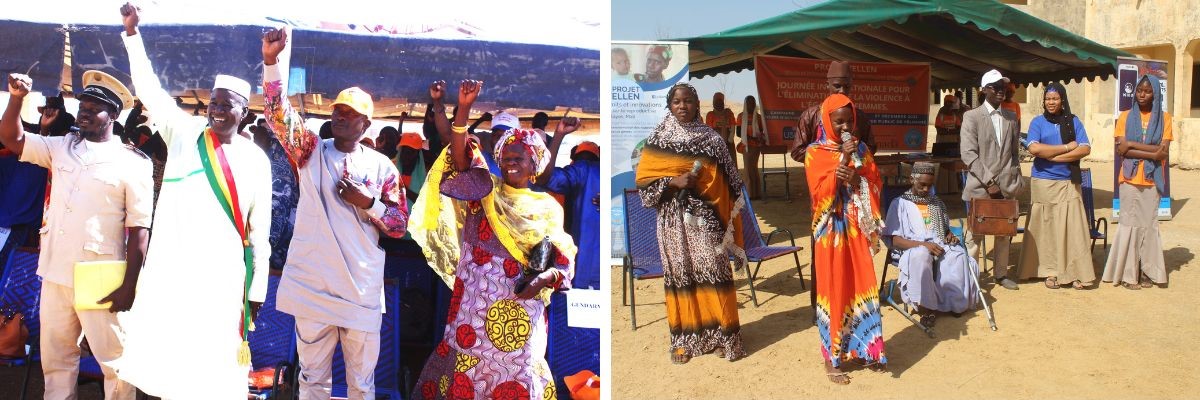
The event was punctuated by poems and sketches carefully orchestrated by the students around the themes of girls' de-schooling and child marriage.
These activities are in line with the objectives of the Yellen project, to strengthen the mobilization of stakeholders around these themes, encourage survivors and communities to attend health services and raise awareness of the scale of the consequences of gender-based violence (GBV).
According to the Mali Demographic and Health Survey (EDSM-VI 2018), at least 45% of women aged 15 to 49 have experienced physical or sexual violence. Among survivors, 68% have never sought help. The same survey reveals a marriage rate of 53% before the age of 18 and a rate of 18% before the age of 16. In 2022, there were 14,264 cases of GBV reported, compared with 9,540 cases reported in 2021, an increase of 49%. This suggests that greater community awareness is encouraging survivors to report cases, and underlines the importance of building capacity to care for and support survivors in parallel.
In the cercle of Yélimané, Female Genital Mutilation/Cutting (FGM/C) is practiced by all ethnic groups and in all communes.
Given this situation, the 16 Days of Activism campaign is a real opportunity to draw the attention of communities and opinion leaders to the daily challenges faced by women and girls around the world.

The Yellen project "Droit et innovation en santé sexuelle et reproductive dans la région de Kayes au Mali" is a bilateral cooperation project between the governments of Mali and Canada. It is implemented by a Canadian consortium made up of the Unité de santé internationale of the Centre hospitalier de l'Université de Montréal (USI - CHUM) and the Centre d'étude et de coopération internationale (CECI).
The aim of this project is to contribute to the transformation of unequal gender relations with regard to the sexual and reproductive health and rights (SRHR) of women and adolescent girls in seven health districts in the Kayes region (Bafoulabé, Diéma, Nioro, Oussoubidiagna, Sagabari, Séféto and Yélimané). It is based on the hypothesis that increasing the decision-making power of women and adolescent girls to take greater control of their own health will encourage greater demand for quality sexual and reproductive health (SRH) services, including gender-based violence (GBV) and family planning (FP). The project proposes an innovative model of collaboration aimed at harmonizing the work of actors from the health services, civil society, in particular women's groups, and decentralized communities. The Yellen project receives financial support from the Government of Canada through Global Affairs Canada.